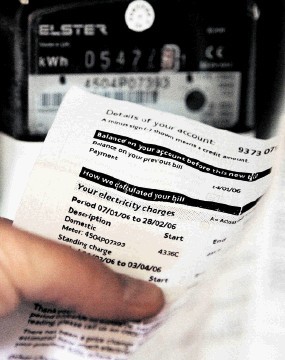
Vulnerable households face paying £57 per year more typically for their energy from next month, a consumer help website is warning.
Martin Lewis, founder of MoneySavingExpert.com, said that an energy price cap has been “flaccid” so far – as energy firms’ prices have been set just a few pounds below the maximum limit.
The energy price cap for prepayment and vulnerable customers will rise to £1,089 per year based on typical dual fuel usage.
MoneySavingExpert.com said households could see their bills increase by an average of £57 per year more.
The website said several energy giants have already confirmed they will be increasing their prices to just £1 or £2 shy of the new cap.
It said this means many of the four million prepayment customers and a further one million vulnerable customers on standard credit meters are facing a potential price hike from April 1.
Mr Lewis said: “In practice, what we’ve seen so far is flaccid. A price cap is supposed to set a maximum price for the ‘few’ firms not engaging in competition. That was never going to happen.
“In reality, it’s simply allowed all the big firms to say, ‘that’ll do’, and set their prices within a quid or so of the maximum.”
Mr Lewis continued: “So forget the price cap. The best advice for most people on prepayment meters is to do a comparison to see if there’s a cheaper tariff.
“For someone on typical bills, savings of £100 a year are possible.
“But as many of the poorest in society are on prepay, the sad news is that this is still an uncompetitive market, and far cheaper deals are available via switching to a normal billed meter.”
People can check whether they can switch to a better deal using MoneySavingExpert.com’s free cheap energy club or they can go to its prepaid gas and electricity guide – www.moneysavingexpert.com/utilities/switch-prepaid-gas-electricity for more information on how to switch.
Dermot Nolan, chief executive of regulator Ofgem, said in February: “Even when energy costs rise, people on the worst deals are better off under the safeguard tariff as they can be sure that they are not overpaying for their energy and any rise is justified.”
Recommended for you
